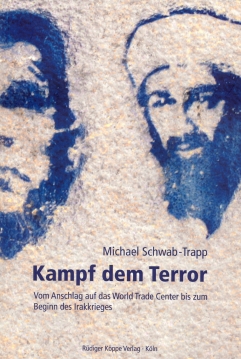2007
329 pp.
1 table, list of publications of the author
Text language: German
The present study examines the meaning of the German discussion about the terrorist attack of the 11 September 2001 for our understanding of war. This is done on the basis of the first reactions on the attack, the discussions about the war in Afghanistan, and the adjacent controversy in the run-up to the war in Irak. The reconstruction of the public processing of the 11 September emanate from the research leading proposition that the legitimacy of military authority and force is mainly affected by the interpretation designed by the actors of the political publicity in their discursive conflict about war and military force.
The analysis mainly concentrates on offered interpretations including more or less explicit arguments in favour or against a military reaction on the terrorist attack. Neither the background settings and reasons of the attacks nor the legitimacy and appropriateness of the sequel wars are focussed but the question of how the political reality is constructed by the affiliation of reasons, denotation of consequences, verbalisation of strategies, and the argumentation in favour of a military fight against international terrorism.
The author holds the view that the discussion about the terrorist attacks in New York and Washington are part of a more comprehensive discourse about the legitimacy of military force and war. This discourse started with the German reunification, included the discussions about the second Gulf war, the conflict in former Yugoslavia, and the Kosovo war, and changed the German political culture of war in an essential way. An extensive epilogue by Trutz von Trotha enlarges the book.








